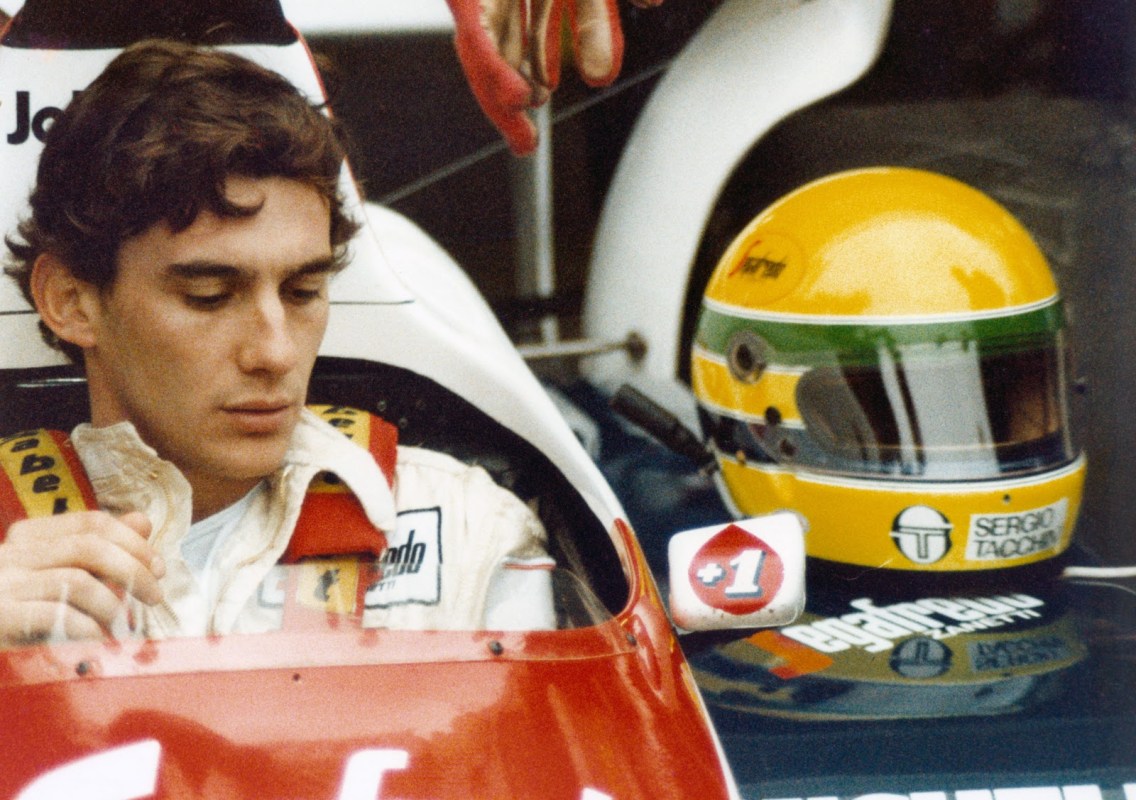Directed by Asif Kapadia
Formula One is to racing what boxing is to fighting, and yes, that is an entirely personal opinion. There is more of an art and a class to Formula One in my mind. In boxing it is the same thing whereas UFC is more of a violent brutality. It doesn’t really matter a whole lot really though. At the end of the day racing is racing and fighting is fighting, but it is the personalities which make the sport interesting and entertaining. For me Formula One equates to Michael Schumacher, who is a 7 time champion, but before my time there was Ayrton Senna, a driver in the 80s who made a run at a few titles and along the way made some friends, and some enemies.
Senna was an underdog story from the country of Brasil, a large South American country which is described as being a cross between a paradise and a purgatory, with widespread poverty and as a result, violence. At an early age Ayrton was behind the wheel, racing go carts, and soon he made his way to the big leagues, Formula One. Once there he had to fight his way up the pecking order, driving the hell out of his cars which were less impressive than those he raced against. He rose to prominence on Team McLaren, but his teammate Alain Prost created friction between the two as Senna claimed he was being slighted by politics, and Prost claimed Senna was too selfish and too much of a wildcard on the track.
Not everyone is a racing fan, not everyone is a sports fan, but when a film is good enough, when a story is good enough, you don’t have to be. The only thing required is that you are a fan of people because while this film is about a man who made a career out of driving cars, when you get down right to it, it is still just a film about a man. And the way in which director Asif Kapadia presents this man is what makes it a good documentary. I was surprised and at the same time endlessly impressed by the fact that the entire film is comprised of achieve footage, which gives it a certain feel which seems to really compliment the story itself.
I have always thought that in documentaries, interview footage seems a bit clunky other than to perhaps capture the emotion. Of course there are exceptions to that where interviews are brilliant, but I think the style Kapadia chooses suits the film well. Senna was an inspiration to a great number of people, especially in his native Brasil. Knowing nothing about the man going into the film, I was treated with some great sequences within the timeline of his career. It is this collection of moments which helps to build the character of Senna and create a certain mood of tension and heartbreak. Not to spoil the film, but to see the end in sight from early on in the film is not hard, nor is it a detriment to the film.
Senna was a flawed person, as we all are, but he was brave and he lived his passion by racing. The documentary shows him as being scared of his profession, and with good reason. It shows him as taking safety on the track very seriously and being well respected by the other drivers. I am sure the whole picture is not here. I am sure there are some less flattering episodes in his life, but with Senna it seems the best is remembered, as it always is with people we love who die. Kapadia shows a sensibility with the material that makes it one of the most engaging views all year.


It is what a documentary should be: teach the viewer about a specific subject, but also be fun and exciting. The use of archival footage is quite good and gives us just enough to have a clear indication of the type of person Senna was, making it fun to follow him throughout his illustrious career.
LikeLike